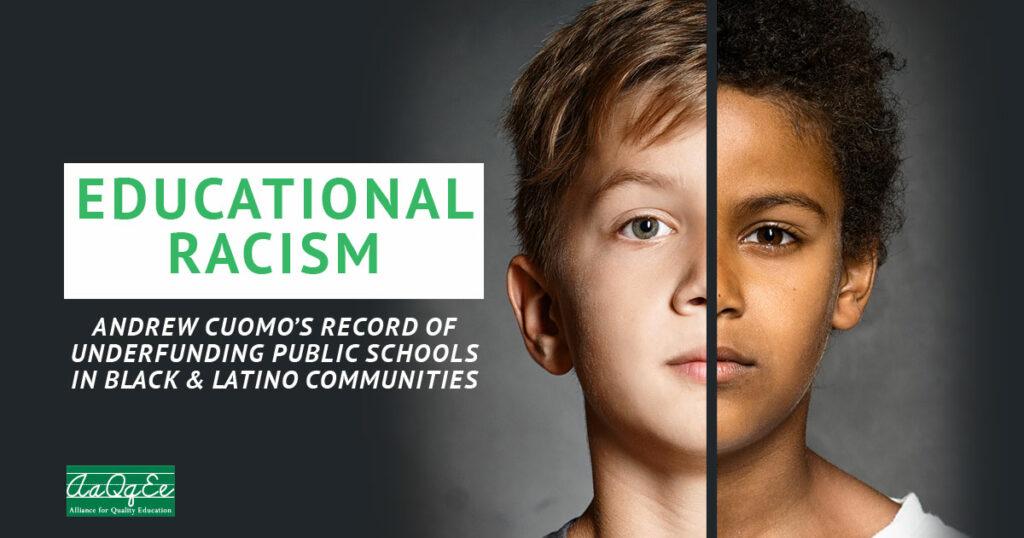Blog
New AQE Report Shows NY’s Record of Underfunding Schools in Black & Latino Communities

A new report released by the Alliance for Quality Education (AQE) reveals that the inexcusable underfunding of New York’s public schools hits districts with Black and Latinx students the hardest.
Thanks to the Campaign for Fiscal Equity’s 13-year lawsuit against the State of New York, a struggle supported by the Schott Foundation from our earliest days, a “Foundation Aid” formula was mandated by the courts and finally passed into law by the state legislature in 2007. However that promise to New York’s children was never fully kept: some $4.2 billion in total, by the state’s own numbers, is still owed to districts.
AQE’s “Educational Racism” report highlights that this underfunding hits some districts harder than others. From the executive summary:
- Two thirds of the districts in New York State are still owed Foundation Aid. By contrast, 100 percent of high needs school districts with majority Black and Latino students are owed Foundation Aid.
- There 25 school districts that are both high need and majority Black and Latino.
- The students in these 25 districts represent 80 percent of the Black and Latino (Latinx) students in the state and 69 percent of the economically disadvantaged students in the state
- These 25 school districts are owed 62 percent ($2.6 billion) of all Foundation Aid. The failure to fully fund Foundation Aid results in the failure to adequately fund schools that are majority Black and Latino.
This is, sadly, a story we see in communities all across the country: the quality of one’s public education is largely on our position within the very structural problems that schools are told to solve. Our time in school, as in the workplace and neighborhood, is impacted by matters of class, race, gender, orientation and disability.
Education isn’t a magical solution to the social ills of contemporary America, but the very least our policymakers can do is keep schools from exacerbating those problems. First and foremost, government at all levels should provide an equitable distribution of resources to our schools—to make sure that the students with the least support outside of school get the most support inside school.
As the AQE report concludes:
The failure to fully fund schools is perpetuating educational racism. Educational racism is evident in many different ways in our schools. The most obvious example is the large difference in graduation rates and the the lack of adequate educational opportunities that many Black and Latino (Latinx) students have. A majority of Black and Latino (Latinx) students attend underfunded schools, which often lack up-to-date textbooks or technology, have overcrowded classrooms, and do not offer music and art every week because of the lack of space or teaching staff. Many Black and Latino (Latinx) students have been consistently deprived of programs that enable their White peers to graduate high school and be admitted to the college of their choice.
Our children deserve better, and it will take the concerted efforts of students, parents, and educators in social movements to win the equitable funding so desperately needed.


